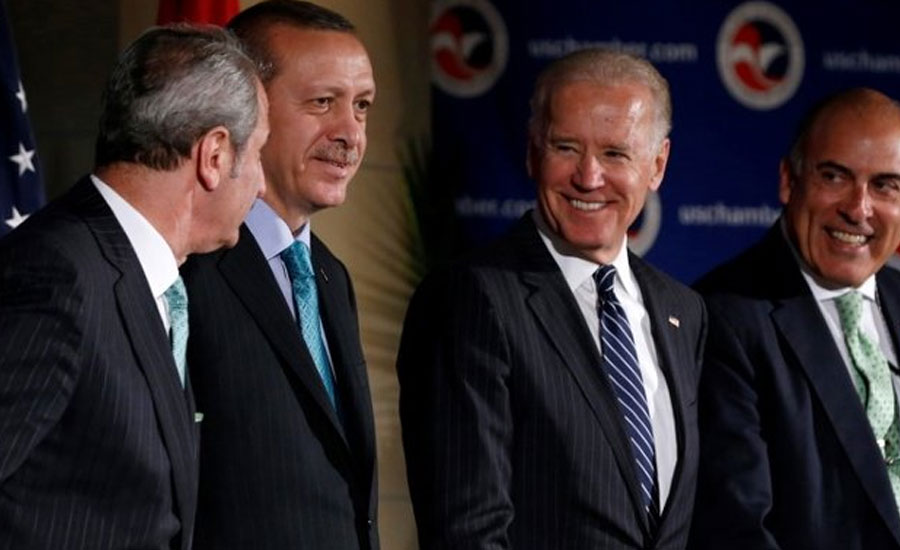Rifts that divide NATO allies Turkey and United States

(Reuters) - Joe Biden holds his first meeting as US president with Tayyip Erdogan on Monday, ending a five-month wait for the Turkish leader which underlines the cooler relations between Ankara and Washington since Biden took office in January.
The two leaders must navigate an array of disputes, most of which pre-date Biden's taking office in January and which have strained relations between the two allies for years.
MISSILE DEFENCE
Turkey, a NATO member, has angered the United States by buying Russian S-400 ground-to-air defence missiles.
SUPPORT FOR SYRIAN KURDS
Turkey is furious about U.S. support in Syria for the Kurdish YPG militia, which Ankara sees as a terrorist group.
Turkish forces have carried out three incursions into northern Syria since 2016 to push the YPG back from the border.
Biden's only phone call with Erdogan since entering the White House came in April, when he gave notice that he planned to describe the World War One massacres of Armenians by the Ottoman Empire, forerunner of modern Turkey, as a genocide.
Erdogan said the designation was baseless, unjust and harmful to ties, and called on Biden to reverse it.
TURKEY'S FAILED COUP AND EXILED CLERIC
US officials have said courts would require sufficient evidence to extradite the elderly Gulen, who has denied any involvement in the failed coup.
Turkey's Interior Minister Suleyman Soylu has accused the US of being behind the coup attempt, a charge Washington says is wholly false.
HUMAN RIGHTS
In February a bipartisan majority of the US Senate urged Biden's administration to push Turkey to do more to protect human rights, accusing Erdogan of marginalizing domestic opposition, silencing critical media, jailing journalists and purging independent judges.
US CONSULAR DETAINEES
An Istanbul court sentenced a Turkish employee at the US consulate to five years in jail last year for aiding Gulen's network. Nazmi Mete Canturk, a security officer at the Istanbul consulate, denied the charges and is free pending appeal.
US MIDDLE EAST POLICY
Erdogan accused Biden last month of "writing history with bloody hands" after he approved weapons sales to Israel during its conflict with the militant Hamas group which runs Gaza.
The United States condemned as anti-Semitic some of Erdogan's comments during the conflict, in which he described Israelis as murderers and child-killers.
In 2018 a US court sentenced Mehmet Hakan Atilla, a Turkish citizen and banker at Turkey's state-controlled Halkbank, to 32 months in prison after he was convicted of taking part in a scheme to help Iran evade US sanctions.
The bank has been indicted on the same charges, and pleaded not guilty to bank fraud, money laundering and conspiracy charges. The case is still pending. Atilla was released in 2019.
TWO PRESIDENTS
Erdogan, who has ruled Turkey for nearly two decades, said in early June that relations with the Biden White House were more tense than they had been with three previous presidents.
"In our meeting with him, we will of course ask him why US-Turkey relations are at a tense stage," Erdogan said.







